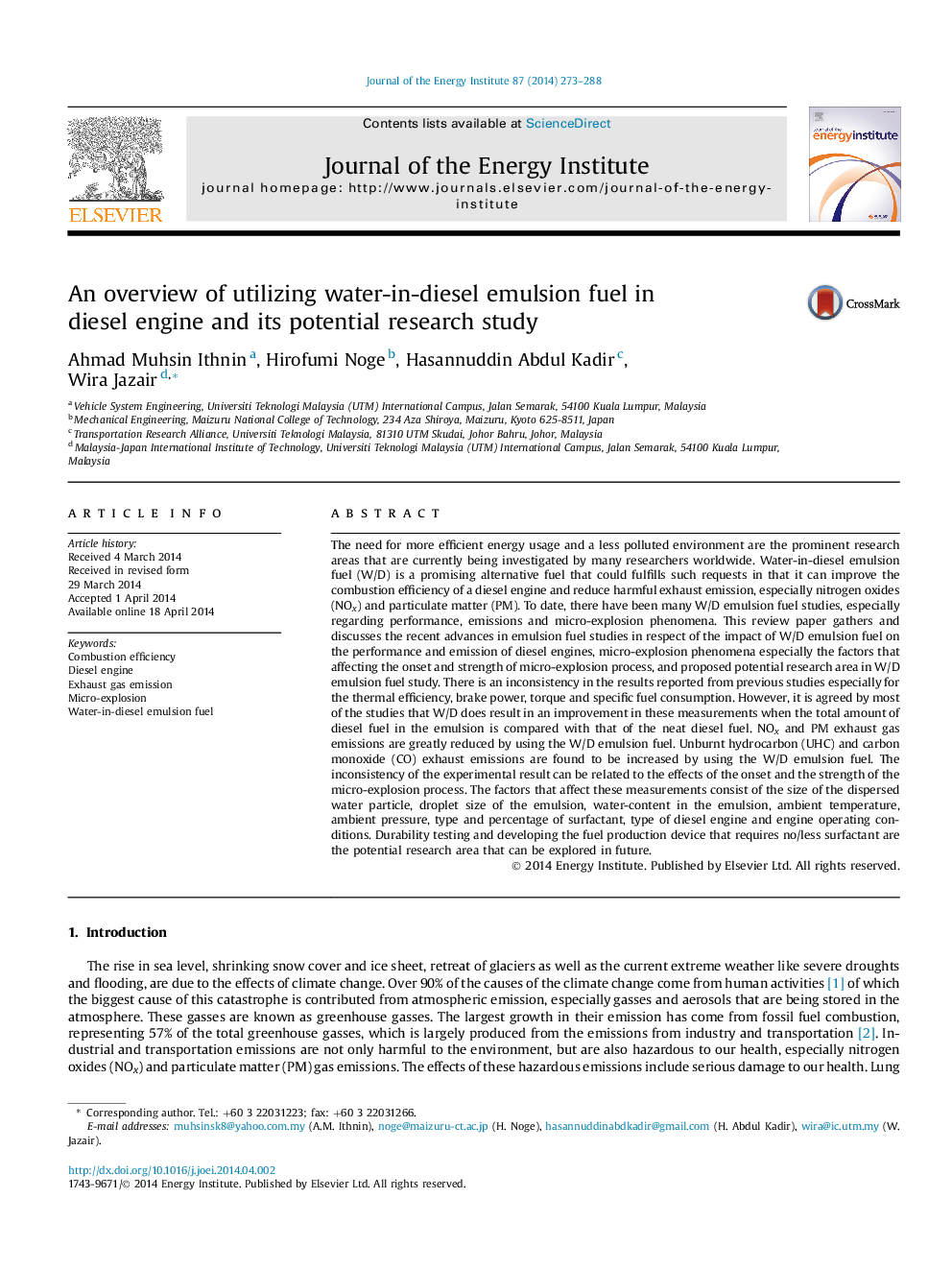| Article ID | Journal | Published Year | Pages | File Type |
|---|---|---|---|---|
| 1747696 | Journal of the Energy Institute | 2014 | 16 Pages |
The need for more efficient energy usage and a less polluted environment are the prominent research areas that are currently being investigated by many researchers worldwide. Water-in-diesel emulsion fuel (W/D) is a promising alternative fuel that could fulfills such requests in that it can improve the combustion efficiency of a diesel engine and reduce harmful exhaust emission, especially nitrogen oxides (NOx) and particulate matter (PM). To date, there have been many W/D emulsion fuel studies, especially regarding performance, emissions and micro-explosion phenomena. This review paper gathers and discusses the recent advances in emulsion fuel studies in respect of the impact of W/D emulsion fuel on the performance and emission of diesel engines, micro-explosion phenomena especially the factors that affecting the onset and strength of micro-explosion process, and proposed potential research area in W/D emulsion fuel study. There is an inconsistency in the results reported from previous studies especially for the thermal efficiency, brake power, torque and specific fuel consumption. However, it is agreed by most of the studies that W/D does result in an improvement in these measurements when the total amount of diesel fuel in the emulsion is compared with that of the neat diesel fuel. NOx and PM exhaust gas emissions are greatly reduced by using the W/D emulsion fuel. Unburnt hydrocarbon (UHC) and carbon monoxide (CO) exhaust emissions are found to be increased by using the W/D emulsion fuel. The inconsistency of the experimental result can be related to the effects of the onset and the strength of the micro-explosion process. The factors that affect these measurements consist of the size of the dispersed water particle, droplet size of the emulsion, water-content in the emulsion, ambient temperature, ambient pressure, type and percentage of surfactant, type of diesel engine and engine operating conditions. Durability testing and developing the fuel production device that requires no/less surfactant are the potential research area that can be explored in future.
